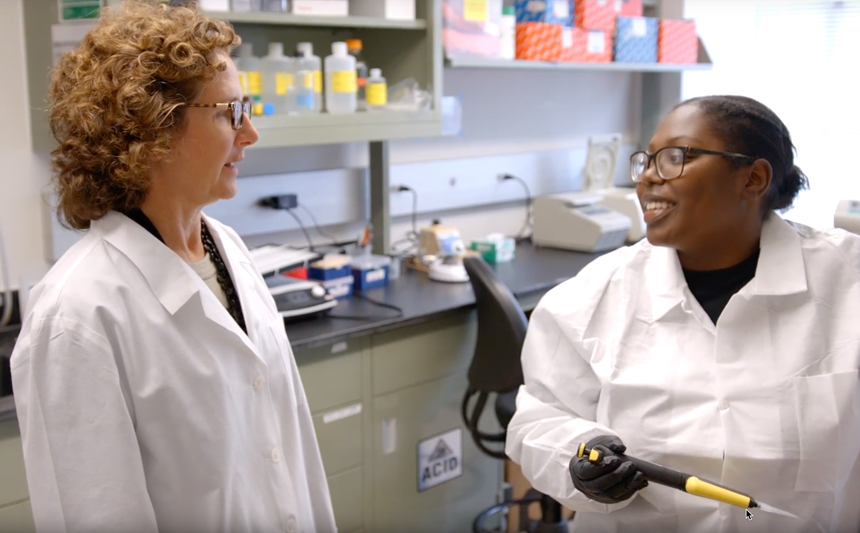Father’s death from diabetes inspires this UK researcher’s work

Barbara Nikolajczyk has always had a passion for scientific exploration and discovery. After losing her father to complications from Type 2 diabetes, she decided to delve into research examining the connection between inflammation and the disease.
Nikolajczyk, who is an assistant professor of pharmacology and nutritional sciences at the UK College of Medicine, as well as the assistant director for translational research at the UK Barnstable Brown Diabetes Center, has secured funding for a project that follows people who are relatively metabolically healthy as they progress to Type 2 diabetes. Her research team is hoping to identify potential drug targets along that trajectory.
Nikolajczyk is also partnering with the Women’s Health and You (WHY) registry, which has over 17,000 participants, to create a sub-registry of women with Type 1 and Type 2 diabetes. The partnership is a win-win for WHY and Barnstable Brown as it increases the number of participants for research studies and for spreading information on personal care and community resources for diabetes patients.
Challenges of research
Working with human subjects and moving from bedside to bench comes with its own set of challenges, but according to Nikolajczyk, these challenges help push the next generation of researchers to reach their full potential.
“With human subject research, you have to be really flexible,” Nikolajczyk said. “A sample may come in at the very end of clinic, at 4 or 5 o’clock. You need to decide, is it more important to get your data out of that sample, or is it more important to keep plans you had with your friends in the evening? It’s not easy, and it’s never 9-to-5. I really try to challenge the preconceived notion of what a career [in research] is with this flexibility aspect.”
Work environment
The culture surrounding UK’s research environment is particularly gratifying for Nikolajczyk.
“I feel like every single person here is on the same team with the same goals,” she said. “When I have a success in something, I feel like others feel that as their success as well.”
What is most fulfilling to Nikolajczyk is seeing students push through challenges to reach their “eureka moment.”
“It’s not a scientific discovery, but I think it’s sort of perpetuating science to the next generation.”




